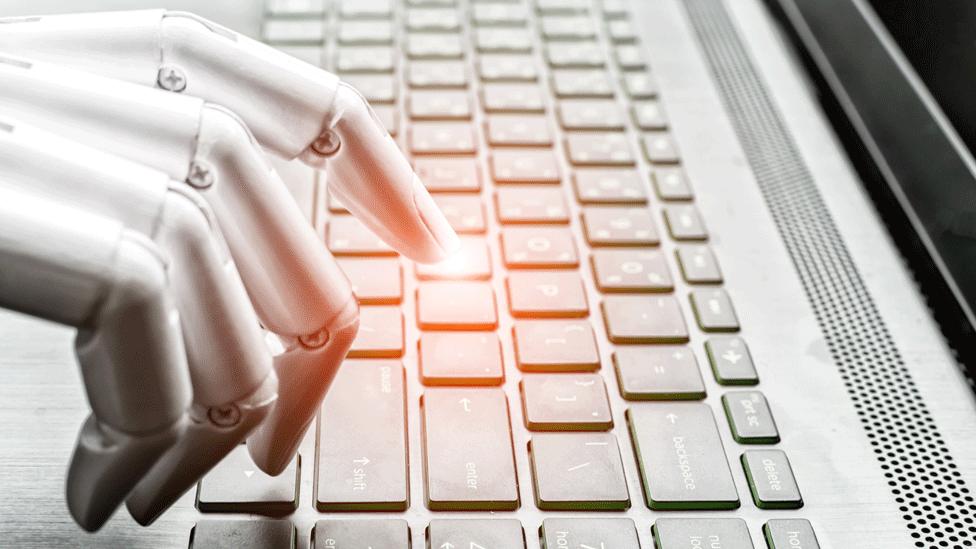China to curb facial recognition and apps in schools
- Published
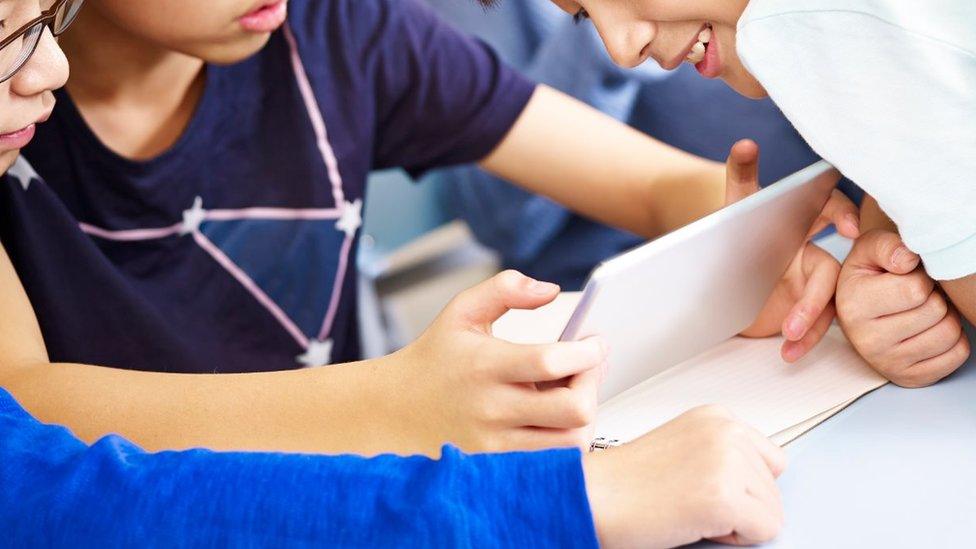
New Ministry of Education guidelines calls for the registration of all education apps
The Chinese government says it plans to "curb and regulate" the use of facial recognition technology and other apps in schools.
The pledge came from Lei Chaozi, director of science and technology at China's Ministry of Education.
It follows reports a university in China was trialling the technology to monitor the attendance and behaviour of students in class.
The pilot project was met with criticism online over privacy concerns.
Images appeared to show China Pharmaceutical University (CPU) in Nanjing, Jiangsu Province, using the technology at school gates and dormitories.
Last year a similar network of monitoring devices, able to give teachers real-time feedback on student concentration levels, was reportedly installed at a high school in Hangzhou.
Mr Lei told website thepaper.cn that the use of facial recognition technology on campus raises privacy concerns.
"We need to be very careful when it comes to students' personal information," Lei said (in Chinese). "Don't collect it if it's not necessary. And try to collect as little as possible if we have to."
The Ministry of Education issued new guidance on Thursday, external on the use of all sorts of apps used by education providers, China Daily reports.
In your face: China's all-seeing surveillance system
It recommends education authorities and schools seek the opinions of parents, students and teachers before introducing technology.
Any apps in use have to be registered by the end of this year to build a database for better supervision, reports say.
Controversial technology already in use includes "intelligent uniforms" to monitor student locations, external in a number of schools, The Global Times reports.
China has become a pioneer in the use of facial recognition and other surveillance technology.
Earlier this week a popular Chinese facial-swap app, allowing you to transform yourself into TV and film roles, sparked fresh concern.
- Published4 September 2019
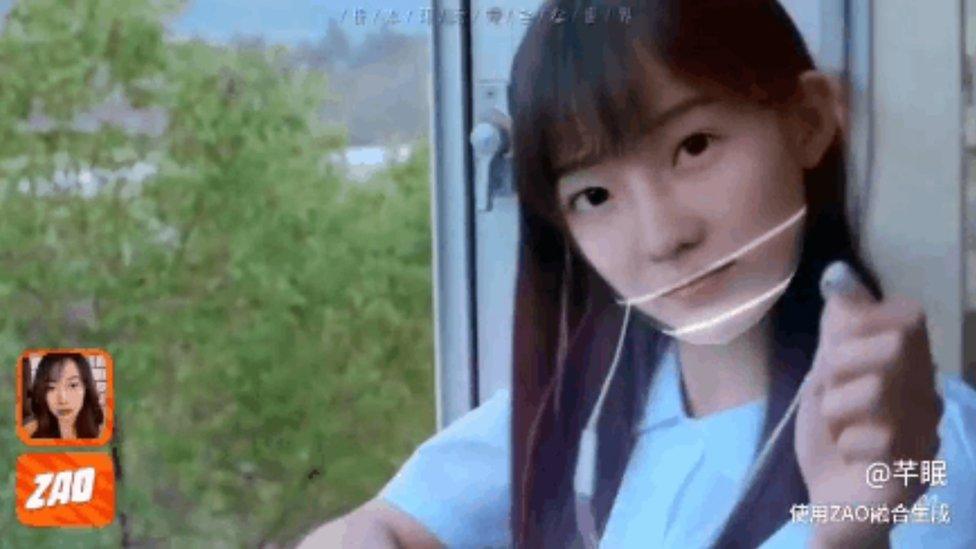
- Published16 August 2019
- Published9 August 2019
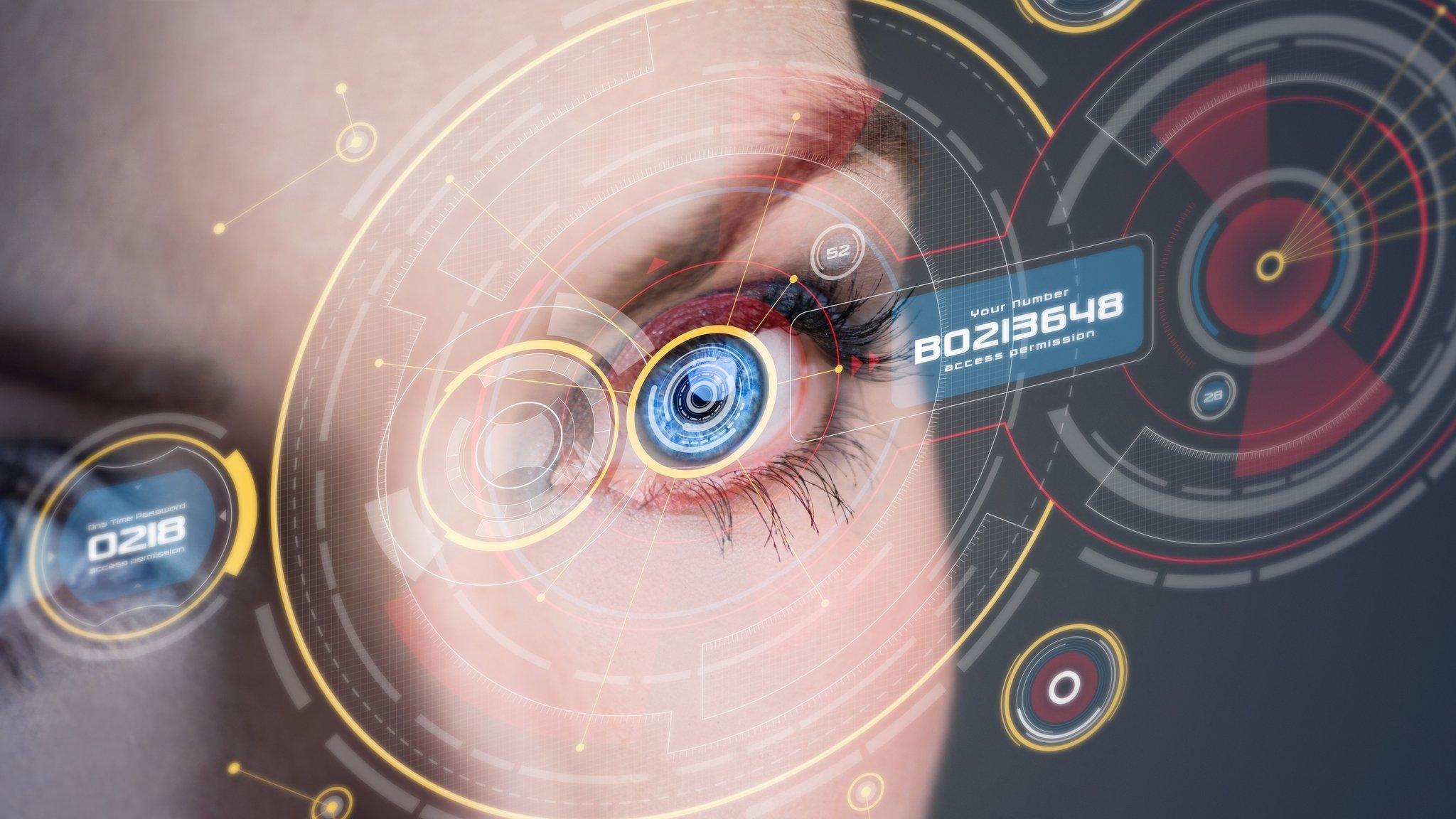
- Published14 November 2018
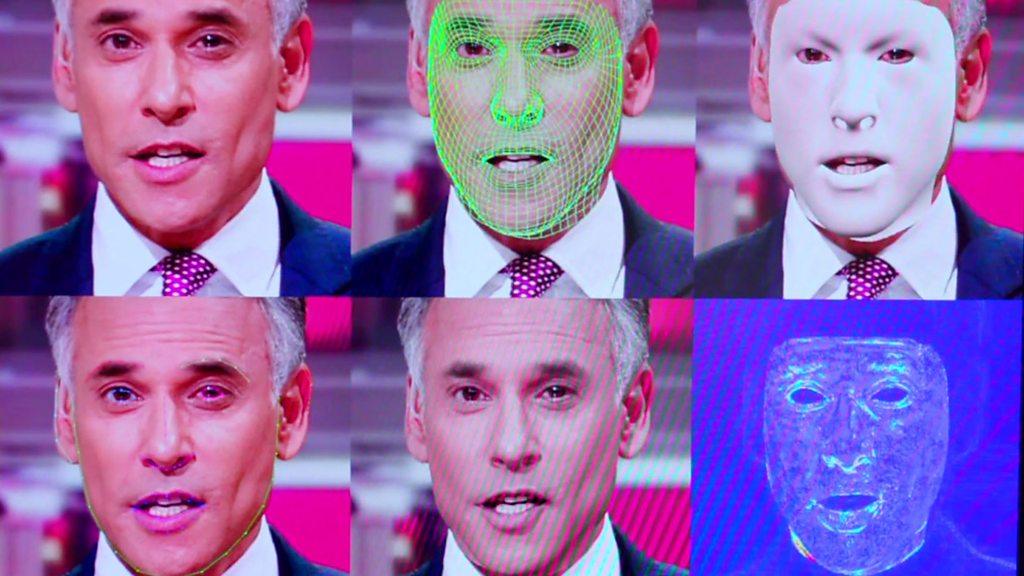
- Published1 March 2018
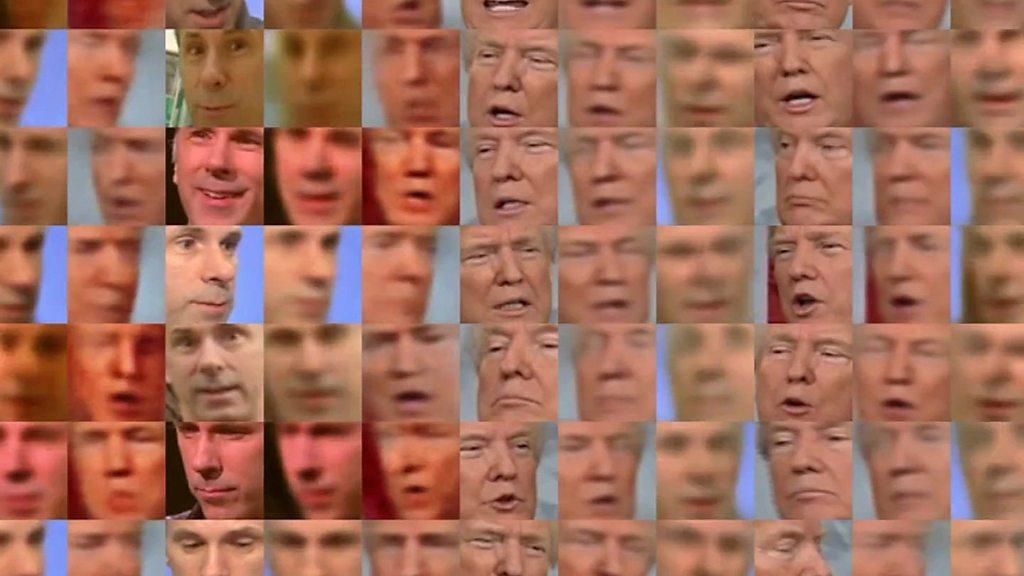
- Published27 August 2019
